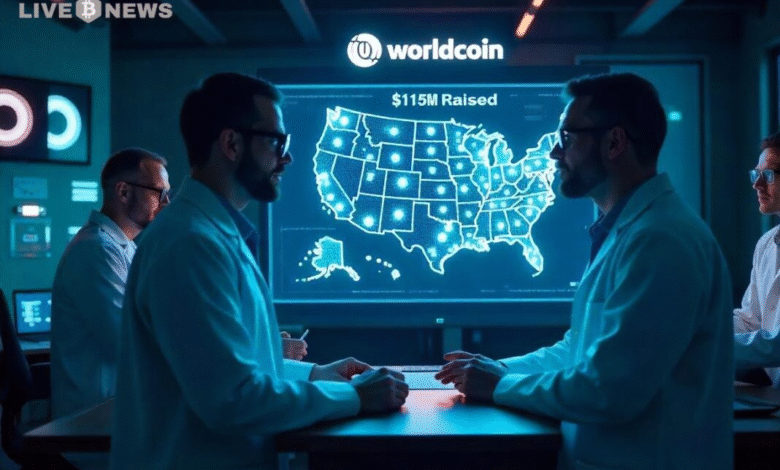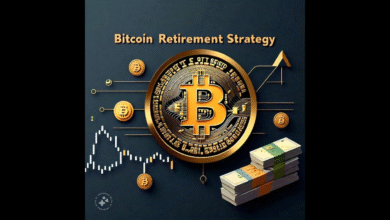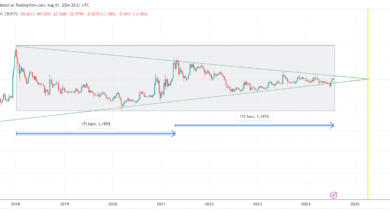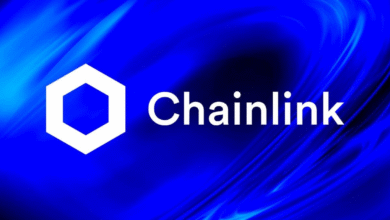Worldcoin: The Controversial Crypto Initiative by Sam Altman

Worldcoin, a visionary project spearheaded by OpenAI founder Sam Altman, has emerged as a highly discussed topic within the cryptocurrency community. With its ambitious goal of utilizing crypto biometric verification to create a secure identity system, it aims to differentiate between humans and AI entities, a move that is both groundbreaking and controversial. The initiative promises to usher in a new environment where individuals can qualify for a universal basic income through their World ID, an identity tied to biometric data. However, the journey has not been smooth, as many critics argue that it threatens personal privacy and could lead to a dystopian surveillance state. As the buzz around Worldcoin grows, it’s essential to stay updated with Worldcoin news, especially in the context of the ongoing integration of AI and cryptocurrency.
The project that rebranded from World to Worldcoin has stirred significant dialogue across various sectors, combining cutting-edge technology with uncharted ethical considerations. Leading the charge, Sam Altman envisions a framework where biometric data establishes verified human identities within the digital economy. This innovative approach not only seeks to curb the rise of AI bots but also introduces concepts like a universal basic income through digital identity systems. Nevertheless, numerous stakeholders raise alarms about the potential exploitation involved in gathering such sensitive data, especially in underdeveloped regions. As discussions unfold about this digital currency and its implications, understanding the landscape around AI and cryptocurrency remains crucial.
Understanding Worldcoin and Its Impact on the Crypto Landscape
Worldcoin, initiated by OpenAI’s founder Sam Altman, stands at the forefront of a contentious evolution in the cryptocurrency space. Its unique proposition revolves around utilizing biometric data to verify individual identities, aiming to differentiate human users from AI bots. This innovation is intended to support initiatives like universal basic income, a concept gaining traction as AI technologies increasingly automate various economic sectors. The growth of Worldcoin is especially notable amid the broader crypto market rally, with its token, WLD, experiencing significant appreciation as interest in AI continues to surge.
However, Worldcoin’s approach has divided opinions within the cryptocurrency community. Proponents argue that its biometric verification system will enable the establishment of a more equitable digital economy, especially in regions that may benefit from the influx of financial support. Critics, on the other hand, see it as a potential infringer on personal privacy and a harbinger of a new form of digital colonialism, particularly since biometric data collection often targets economically disadvantaged areas. The tension around Worldcoin highlights the ongoing debate about the intersection of technology, ethics, and the future of decentralized finance.
The Road to Decentralization: Worldcoin’s Ambitious Goals
At the recent ‘At Last’ event, Sam Altman and Alex Blania outlined Worldcoin’s ambitious roadmap, which is centered on building a robust Proof-of-Human system. The project’s immediate focus is on launching its token in order to incentivize users to undergo biometric verification in exchange for World tokens. This drive aims to establish a critical mass of verified users, thereby showcasing the platform’s utility as a decentralized network. The ultimate vision is for Worldcoin to achieve a global reach, enabling universal access to the benefits of Artificial General Intelligence (AGI), which could potentially transform economic landscapes.
Despite these ambitious goals, the project faces significant backlash regarding its data practices. The iris scanning required to create a digital identifier, known as World ID, raises substantial ethical questions and has led some data protection authorities to initiate investigations. Critics are particularly concerned about the project’s potential for exploitative practices in vulnerable regions, framing it as a form of digital colonialism. These concerns underscore the critical need for transparency and ethical considerations as Worldcoin moves towards its goal of greater decentralization.
How the World App Enhances User Experience
A pivotal element of Worldcoin’s offering is the World App, which is designed to seamlessly integrate financial management and social interactions within a single platform. Currently boasting 26 million users, the app’s functionality extends beyond typical cryptocurrency wallets, allowing individuals to engage in chat-based interactions while maintaining verified identities. This feature not only improves security but also facilitates trust in digital conversations, crucial in a landscape where AI bots proliferate.
Moreover, the World App’s strategic partnerships with companies like Circle and Stripe are setting the stage for innovative monetary transactions. The ability to transfer money alongside chatting, as easily as sending images, exemplifies the integration of traditional financial services into the crypto world. Additionally, initiatives like the rollout of a dedicated World credit card broaden the app’s usage, indicating that Worldcoin is positioning itself as a ‘super app’ capable of meeting diverse user needs in an increasingly AI-driven economy.
The Bull Case for Worldcoin’s WLD Token
As interest in artificial intelligence continues to soar, the WLD token could emerge as a substantial beneficiary amidst the backdrop of crypto hype. With fundamental developments at OpenAI poised to enhance the utility of WLD, the potential for a significant price surge cannot be understated. The collaborative efforts between Sam Altman and renowned designer Jony Ive on new AI devices signal a bright horizon for WLD, particularly with the expected adoption of innovative applications that could embed Worldcoin further into everyday digital life.
Investor sentiments around WLD are particularly bullish following recent funding boosts from prominent venture capital firms like a16z and Bain Capital Crypto. This influx of capital reflects growing confidence in Worldcoin’s strategies and its potential market position. As the company prepares for its U.S. market launch, many eyes are on the price trajectory, which, despite a significant sell-off last year, shows promise given the strong demand for the token in relation to its ambitious agenda of integrating AI and cutting-edge financial services.
Worldcoin’s Ethical Dilemmas: Privacy vs. Innovation
While Worldcoin attempts to position itself at the intersection of technological innovation and societal benefit, it is not without ethical quandaries. The reliance on biometric data for identity verification raises vital questions about privacy and consent, especially in vulnerable communities. Critics assert that this could lead to a scenario where individuals trade their personal biometrics for financial incentives, potentially creating systemic issues concerning data protection and individual rights.
As the project moves forward, addressing these ethical concerns will be paramount. The backlash from regulatory bodies across Europe serves as a stark reminder of the delicate balance that must be struck between leveraging technology for advancement and ensuring that such advances do not come at the expense of personal liberties. The ongoing debates surrounding World ID highlight the urgent necessity for comprehensive regulations that safeguard users while fostering innovation within the cryptocurrency space.
The Future of Biometric Verification in Crypto
Biometric verification represents a groundbreaking approach within the cryptocurrency landscape, with Worldcoin leading this charge. By utilizing unique biological traits, it promises to create a more secure and efficient identity verification process. This shift could redefine user interactions in the digital marketplace, enabling businesses to offer tailored services while significantly reducing the risk of fraud associated with traditional methods of verification.
However, this technology also comes with its own set of challenges. The implications of storing and managing sensitive biometric data must be weighed carefully. Ensuring that this information is not only collected responsibly but also protected against breaches is crucial in maintaining user trust. Moreover, as the market adjusts to this innovative approach, setting industry standards for biometric data use will be essential to prevent misuse and ethical violations.
Worldcoin’s Position within the AI Revolution
As artificial intelligence continues to disrupt traditional industries, Worldcoin’s intersection with AI presents both opportunities and challenges. The project’s framework aims to utilize AI for meaningful economic contributions through concepts such as universal basic income. This integration positions Worldcoin not merely as a cryptocurrency but as a proponent of a new economic model designed to accommodate the changing labor market influenced by AI advancements.
Nonetheless, the confluence of AI and cryptocurrency also raises concerns about governance and control. The prospect of centralized systems managing personal biometrics in an increasingly decentralized crypto landscape poses questions about power dynamics and accountability. Ensuring that Worldcoin maintains a transparent and ethical approach will be critical, particularly as it attempts to balance innovation with the safeguarding of individual rights in the era of AI.
Navigating Regulatory Challenges in the Crypto Sphere
As with many cryptocurrency projects, Worldcoin is navigating a complex regulatory landscape. The scrutiny from various data protection authorities, particularly concerning its biometric identification practices, serves as a reminder that compliance is paramount for sustained growth. Worldcoin’s innovations must align with existing regulations such as GDPR to avoid potential legal repercussions and to foster trust among users.
In response to these challenges, Worldcoin may need to adopt more rigorous data protection practices, fostering transparency and advocating for user rights. Establishing clear communication channels between Worldcoin’s stakeholders and regulatory bodies will be crucial in addressing concerns and ensuring that the initiative can operate effectively within legal frameworks while pursuing its mission of global economic inclusion.
The Broader Implications of Worldcoin’s Launch
The successful launch of Worldcoin and its subsequent adoption could have far-reaching implications for the future of digital identity and cryptocurrency as a whole. By introducing a system anchored in biometric verification, Worldcoin sets a precedent for other projects in the blockchain space. This could lead to shifts in how identity is perceived and managed online, highlighting the need for robust frameworks around digital identity verification that prioritize user rights and data protection.
Moreover, Worldcoin’s impact may extend beyond the immediate financial applications of its token. As the project gains traction, it has the potential to influence discussions around universal basic income and the societal integration of AI and cryptocurrency. If Worldcoin can successfully navigate its ethical and regulatory challenges, it may serve as a model for future initiatives advocating for equitable digital economies in an increasingly automated world.
Frequently Asked Questions
What is Worldcoin and how does it relate to Sam Altman?
Worldcoin, initiated by Sam Altman, is a project aimed at using biometric verification to distinguish human users from AI bots. It seeks to provide individuals with a ‘World ID’ that grants access to a universal basic income, helping to address the economic shifts prompted by advances in AI.
How does World ID function in the Worldcoin ecosystem?
World ID is created through biometric verification, specifically iris scans, allowing users to prove they are human. This system underpins the Worldcoin platform, providing users with a unique identity that facilitates transactions and participation in the proposed basic income scheme.
What are the main criticisms surrounding Worldcoin?
Critics of Worldcoin raise concerns about its reliance on sensitive biometric data, calling it ethically questionable and a form of digital colonialism. There are also fears regarding data privacy and potential violations of GDPR, particularly since biometric data collection often occurs in economically disadvantaged regions.
How does the World App enhance the Worldcoin experience?
The World App is a central component of the Worldcoin initiative, boasting 26 million users. It facilitates financial management and communication while allowing users to verify whether they are interacting with bots or real people, thus enhancing trust in digital interactions.
Could Worldcoin benefit from the increasing popularity of AI?
Yes, as interest in AI grows, Worldcoin could see significant benefits. Developments in AI technology, particularly from OpenAI, may drive up the utility and demand for the WLD token, positioning it as a potential market leader in the intersection of AI and cryptocurrency.
What impact did the recent investments from major firms have on Worldcoin?
Worldcoin has seen a boost from a $135 million investment by firms like a16z and Bain Capital Crypto, signaling strong market confidence. This funding can enhance growth initiatives and user acquisition, potentially increasing the value of the WLD token as the project expands.
What role does crypto biometric verification play in Worldcoin’s strategy?
Crypto biometric verification is pivotal to Worldcoin’s strategy as it enables the creation of a secure identifier, World ID. This approach aims to ensure that economic incentives, like universal basic income, are distributed only to verified human users, mitigating fraud in a growing digital landscape.
How is Worldcoin attempting to reach a global user base?
Worldcoin aims to achieve global reach by scaling its biometric verification and launching the World App across various platforms. Partnerships with companies like Shopify and payment processors aim to integrate Worldcoin’s services, easing adoption worldwide and promoting financial inclusion.
What potential does WLD have in the upcoming crypto market?
With renewed interest in cryptocurrencies and the launch of new products from OpenAI, WLD has the potential for significant price increases. Its integration with AI tools could capitalize on the growing market, making it a key player in the crypto landscape.
What are the implications of the ethical concerns surrounding Worldcoin?
The ethical concerns surrounding Worldcoin highlight serious questions about privacy, consent, and data protection. As the project expands, it will need to navigate these issues carefully to maintain user trust and comply with regulations, especially in light of its ambitious goals.
| Key Point | Details |
|---|---|
| Project Overview | World (formerly Worldcoin) aims to use biometric data for identity verification and manage a universal basic income due to automation effects of AI. |
| Biometric Verification | Critics express concern over ethical issues and data protection, as biometric data collection may be exploitative. |
| World App | With 26 million users, the app allows for financial management and identity verification in communications. |
| Market Potential | WLD could benefit from AI hype and the launch of new products linked to OpenAI, increasing its market value. |
| Venture Capital Support | The World Foundation raised $135 million from notable investors, indicating confidence in its future prospects. |
Summary
Worldcoin is a bold initiative led by Sam Altman that seeks to redefine identity verification in the age of AI through biometric data. While it offers the potential for innovative advancements and a universal basic income, the project is steeped in controversy, raising significant ethical and privacy concerns. Investors are keeping a close eye on Worldcoin’s developments, particularly in the wake of new product launches and increasing user adoption, suggesting a volatile yet intriguing future for this digital currency.



